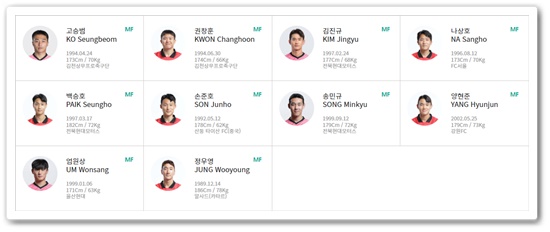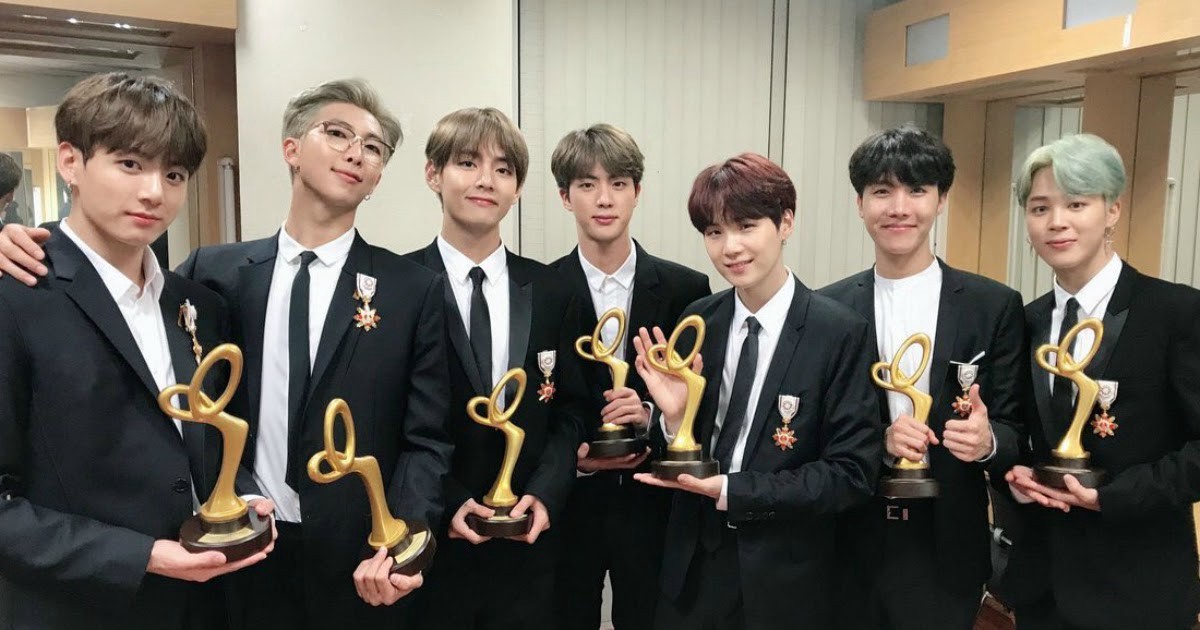
K-Pop as one of South Korea’s greatest use of Soft Power: A probe on BTS as a “cultural event”

When K-pop started in the 1990s, it was not popular worldwide, let alone in Asia. International fans did not watch television to wait for a performance, nor did they fly to Seoul to watch concerts. Slowly, Korean popular music and culture, also known as K-Pop, started to gain more recognition around Asia in the 2000s; and worldwide in the 2010s when South Korea became a major producer of transnational pop culture. With the rise of K-Pop came a renewed interest in studying Hallyu or Korean Wave as more consumers want to learn more about the Korean culture. In 2018, Bangtan Sonyeondan (BTS), were awarded a fifth-class Hwagwan Order of Cultural Merit. Former Prime Minister Lee Nak Yeon stated that because of BTS, “many young people overseas are now singing Korean lyrics, one of the examples of (BTS) contributing to not only spreading Hallyu, but also Hangeul” (Yoon 2018). This article explores K-Pop as South Korea’s soft power through a discussion on BTS as a “cultural event” (Kim 2018 p 77).
Hallyu or Korean Wave was first used by the Chinese press in the 1990s to refer to the increasing popularity of Korean popular culture in China (UNCTAD Report 2017). Currently, Hallyu is used to describe the surge of Korean popular culture around the world. Hallyu is now considered as a national brand as Hallyu fans want to see more Korean cultural content and learn Hangeul, the Korean language. There is also an increase in sales of Korean goods overseas as fans become interested in Korean products and lifestyles (UNCTAD Report 2017). In an interview with Tai (2018), Jenna Gibson, a K-Pop expert and PhD candidate in the Department of Political Science at the University of Chicago in the subfield of International Relations, claimed that “K-Pop is the ultimate soft power tool for Korea.”
Soft power is one’s ability to persuade and attract others to attain the outcomes that one wants. A country has three resources for soft power namely political values, foreign policies, and culture (Nye Jr 2008). In this day and age, popular culture for mass entertainment is seen as good soft power. As for K-Pop, Gibson further explained that the songs are performed in Korean therefore essentially making the listeners want to learn more about the culture, industry, and the country it came from (Tai 2018). To demonstrate the soft power of K-Pop, South Korea has seen a strong increase in international students for the past six years. In 2019, it was a record high of 160,165 international students with 100,215 enrolling in degree programs and the remaining 59,950 are pursuing Korean language studies (ICEF 2019). Moreover, BTS albums were given to the children of heads of states as gifts showing a great diplomatic effect (Do and Kim 2018).
The Hallyu White Paper (2018) has recorded BTS’ success as a catalyst for the rapid growth of K-Pop in North America as exports continue to increase by almost double annually. In 2018, BTS made headlines almost every day leading to Kim (2018 p 77) calling the septet a “cultural event.” In their song Airplane pt. 2, they sing, “We goin’ from NY to Cali, London to Paris… We goin’ from Tokyo, Italy, Hong Kong to Brazil. Wherever in the world, I will sing.” The chorus shows how the group is busy moving from one city to another. Wherever they had concerts, the tickets were all sold out. BTS has led K-Pop to a new level of recognition around the world (Song 2020).

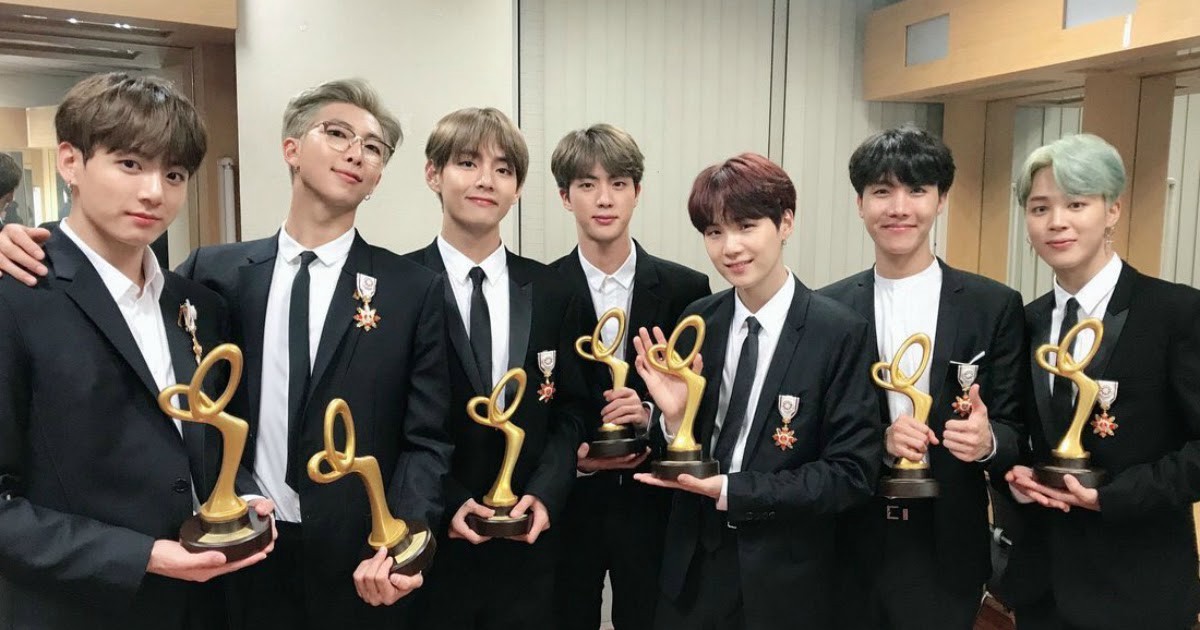
BTS stands for Bangtan Sonyeondan, which means Bulletproof Boy Scouts when translated from Korean. It also stands for Beyond The Scene in English. The seven members namely RM (Kim Nam Joon), Jin (Kim Seok Jin), Suga (Min Yoon Gi), J-Hope (Jung Ho Seok), Jimin (Park Ji Min), V (Kim Tae Hyung), and Jungkook (Jeon Jung Kook) were awarded the Order of Cultural Merit in 2018 for having displayed exemplary services in the field of culture and arts by promoting the Korean culture (Yoon 2018).
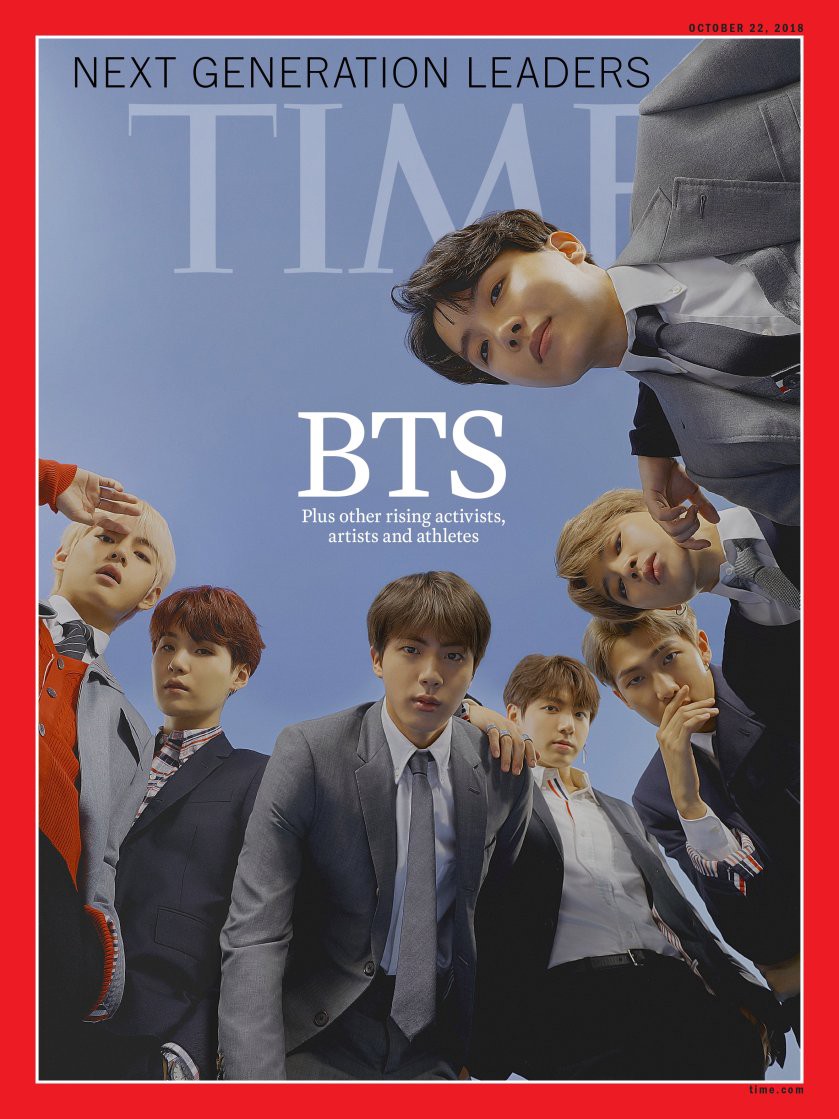
In the same year, BTS made an appearance at the United Nations General Assembly to speak about believing in one’s self and not submitting to social pressure (Wilkinson 2018). BTS also made it to Time Magazine’s Next Generation Leaders, which is a list of young people who are reshaping the world. In an interview, RM, the leader of the group, said that “As a Korean, we love our country and we’re proud of our country so much. And it’s even just an honor to be called an ambassador of Korean K-Pop.” Moreover, Suga, who also produces songs for the group, talked about how their parents and grandparents are proud of them for sharing their culture saying that “…in our generation, we- our parents’ sons- are spreading Korean culture as its representatives and seeing how much of Korean culture we are able to spread these days. Those from my parents’ or grandparents’ generation, even more so than those from our generation, are very proud of is. They love seeing us on the news. And so, for me, it’s enjoyable to see my father proud of things like that” (Herman 2018). Halsey wrote BTS’ TIME article where she has acknowledged how they have dominated the world by breaking records in the music industry, earning several accolades, and flying to different cities around the world. All these while remaining to be “exemplary ambassadors for their Korean culture.” Furthermore, Halsey wrote how BTS believe that their music is “stronger than the barriers of language. It’s a universal dialect.”
BTS’ songs are not in English and they do not have viral music videos like Psy’s Gangnam Style. What made BTS appealing to their fans is music with meaning. They share stories about “bullying, depression, struggles of youth, pursuit of happiness, and forsaking society’s ideals and temptation” which the fans can relate to (Silverstein 2016 p 3). Moreover, what makes BTS stand out even more is that instead of adapting Western music, they have chosen to incorporate Korean traditional culture into their musical arrangements (Kim 2018, Song 2020). This is due to the creative freedom that their label, Big Hit Entertainment, has given them. BTS integrate their messages of love, hope, and inspiration in their music videos by adding metaphors and cultural references (Kim 2017, Bruner 2018, Song 2020). With this, Kim (2018 p 121) has stated that “it is not because the Korean-style attraction helps spur the popularity of BTS but because BTS’ popularity helps spur the Korean-style attraction.” This is a good example of a successful cultural export through the “re-creation of traditional Korean values and cultural identity” (UNCTAD Report 2017 p 26).
BTS did not have to westernize themselves to break into the Western market. In their music video for Idol, BTS wore gat and modernized hanbok, a traditional Korean dress. They even added a number of cultural references. There is a tiger, which has been portrayed in Korean culture as a symbol of strength, and an animal that drives away bad spirits (Google and Arts Culture nd). One can also see a rabbit on the moon, which is commonly found in East Asian countries. This image is most popular during Chuseok, one of the biggest and most important holidays in Korea as families gather to share food and stories and give thanks to their ancestors, as it shows a busy rabbit pounding rice into flour to make rice cakes (KBS World 2016). There were several traditional Korean dances and instruments incorporated as well such as: pungmul, a traditional Korean music including drumming, singing, and a circular leaping choreography; kkwaenggwari, a brass gong; gakgung, a horn bow; and janggu, a traditional drum; pansori, a traditional way of storytelling with the use of a drum. Pansori also uses the word “eolssu” as an encouragement. This can be heard in the chorus of the song (Herman 2018). The cultural showcase does not stop in the music video. During their 2018 Melon Music Awards performance, BTS went all out. They brought in live instruments such as the daegeum, with lion dance and traditional dancers. For the solo performances, J-Hope performed a traditional drum dance called Samgo-Mu. Jimin did a traditional fan dance called Buchaechum. And Jungkook executed a traditional mask dance called Bongsan Talchum. In fact, due to this performance, there was an increase in demand for the digital sound service gugakki, a traditional Korean musical instrument, both domestically and internationally according to the National Gugak Center. This is an evident example of BTS’ fans taking interest in traditional Korean music and culture.

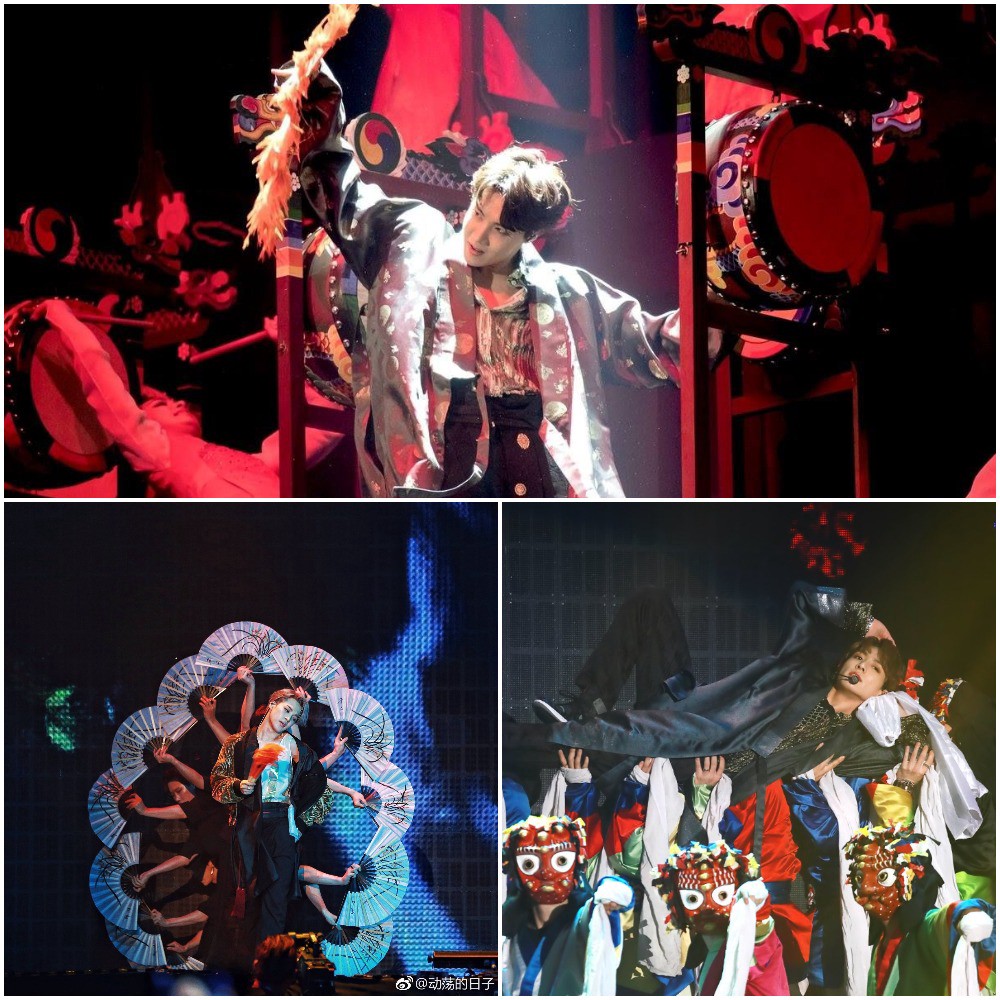
Aside from their music, BTS also promote Korean culture through their web shows. VLIVE is a platform where artists can interact with their fans online by live streaming or uploading content. BTS has a show called Run! BTS on VLIVE. In this weekly variety show, the seven members complete various tasks and compete with each other. The losing team or member would then have to carry out a punishment. In one of the punishments, Jin was dared to wear a hanbok to the airport on their way to Hong Kong for the 2017 Mnet Asian Music Awards. It seemed funny when they were thinking about the punishment, but the day came and Jin looked dashing with Jimin commenting, “hanbok is really beautiful” and Jungkook saying, “…there will be articles [with headlines like] fashionista Jin, hanbok this time?”
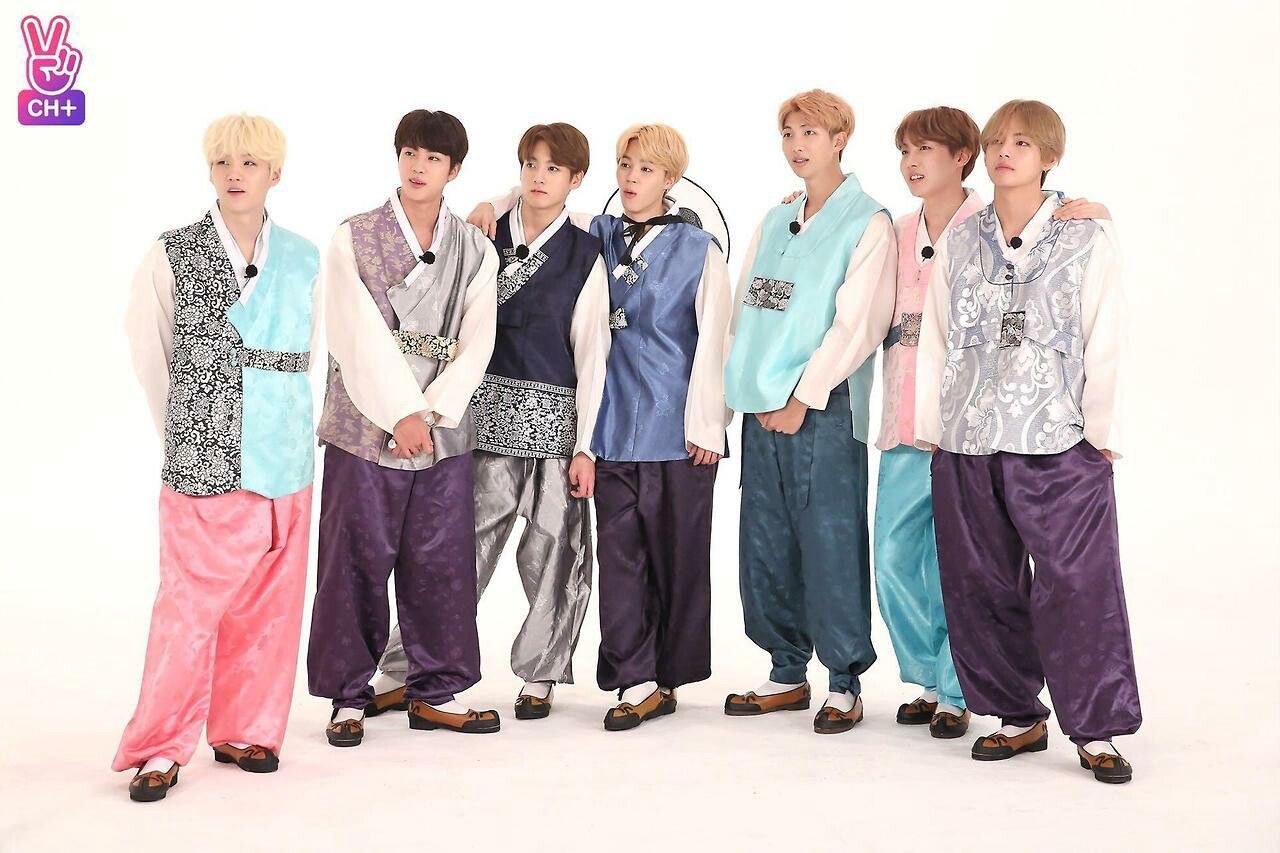
In episode 22, they shot a Hangawi Festival Special to celebrate Chuseok. They started by making songpyeon, a rice cake that represents Chuseok. Then they played yut, a traditional board game. In episode 35, the members learn how to make kimchi, a famous traditional side dish in Korean cuisine. In episode 40, BTS filmed a Lunar New Year Special. They played games and whichever team won would get to eat tteokguk, a traditional dish during Lunar New Year. “Koreans believe that you age one year by eating tteokguk,” explained Suga. As they were doing calligraphy, Suga further explained that, in Korea, they give words of blessings in the new year. BTS also celebrated Hangeul day with a two-part special for episodes 86 and 87. In this special, they were not allowed to use any foreign word. In episode 86, they had Hangeul trivia. The members had fun discovering new facts such as the Hangeul equivalent of “bless you” which was gae chi ne sseo. Unfortunately, no member was able to get the right answer. They were also asked for the meaning of a certain phrase in the Jeju dialect pogsag sagatsuda. After many hints given by the staff, only Jimin was unable to guess the answer which is “thank you for your hard work”. Another question was about a Korean expression for feeling fuzzy as though you’re falling asleep: jamonghada, which only Jin was able to answer. He later admitted that he heard that they were doing Hangeul special for this episode; so, he studied ahead. Another question involved the national foundation day of Korea, “Which month is the month that opened the sky?” The answer was October, and again, all the members but Jimin got the right answer. For episode 87, they searched around the venue looking for consonant and vowel pieces to make a word.
Further promoting the Korean culture, during Big Hit Entertainment’s Corporate Briefing in February 2020, CEO Bang Si Hyuk announced that they are planning learning content that teaches the Korean language. Created in the hope that international fans would be able to enjoy consuming Big Hit’s materials without having to worry about the language barrier. Bang Si Hyuk has mentioned that there is “more demand for learning Korean thanks to K-Pop.” In the show, entitled Learn! Korean with BTS, clips from old media content are used for a more immersive learning experience. As of writing, there are eight episodes, which you can find on Weverse. The first three episodes were uploaded on March 24, 2020. Each episode is about three minutes long.


As an effect of BTS as a “cultural event”, a 2018 report entitled “Economic Effects of BTS” was released by Hyundai Research Institute. The report has recorded that for BTS-related reasons 796,000 foreigners have visited South Korea, and exports were valued at US$1.12 billion. Moreover, for the next ten years, the report estimated that BTS will continue to bring US$37.06 billion, and an added value of US$12.66 billion for the years in between 2014 and 2023 should the group successfully sustain their popularity (Choi 2018). On the last week of October 2019, the septet concluded their Love Yourself: Speak Yourself World Tour by holding a three-night concert at Seoul Olympic Stadium. Another research team led by Pyun Ju-Hyun of Korea University looked into the effects of this event. The research has noted that an estimate of 23,000 foreign fans attended the concert. They also estimated that each attendee brought with them 3.28 companions to Seoul leading to an estimated total of 187,000 tourists brought to South Korea by a BTS concert (Yonhap 2019). It is no doubt that BTS have done a great job as Tourism Ambassadors for Seoul for almost three years now (Kim 2019).
Have you seen BTS’ bag? BTS sing “it’s hella trophies and it’s hella thick” in their 2017 song Mic Drop (Steve Aoki Remix). True enough, they have received numerous awards and attained great achievements. To name a few, in 2019 alone, they have two Billboard Music Awards for Best Duo/Group and Top Social Artist; three American Music Awards for Tour of the Year, Favorite Social Artist, and Favorite Duo/Group; three MTV Europe Music Awards for Best Group, Best Live, and Biggest Fans; two MTV Brazil Miaw Awards for K-Pop Explosion and Fandom of the Year, and one Russian Bravo Award for Best Group of the Year. And in their home country, they swept all top awards at the Melon Music Awards and Mnet Asian Music Awards. These include Song of the Year, Record of the Year, Album of the Year, and Artist of the Year. As of writing, BTS have scored four number-one albums on the Billboard 200 in less than two years for Love Yourself: Tear, Love Yourself: Answer, Map of the Soul: Persona, and Map of the Soul: 7. Their latest album currently holds the biggest sales week for an album in 2020 despite having no promotional aid such as concert ticket/album sale redemption offers (Caulfield 2020).
K-Pop is still not considered mainstream in the Western market; however, with BTS’ popularity, international fans sing along with the Korean lyrics and hold up banners and posters with Hangeul (Ministry of Culture, Sports and Tourism and Korean Culture and Information Service nd). During their show at Metlife Stadium in New Jersey, RM shared, “Dear America, thank you for embracing us. Thank you for loving us. Thank you for accepting us. These seven boys from Korea who are singers in Korean and who have even different looks, speak different languages. You guys truly teach us that music transcends the language…” (Leelo 2019). RM’s speech demonstrates how it is possible for Hallyu to be called for by its audience (Won 2018).
Korean artists are now challenged to enhance the promotion of Hallyu by incorporating traditional and classical Korean culture and literature into their work (Do and Kim 2018). There have been three generations of K-Pop since its beginning in the 1990s; and with each generation, the wave for Hallyu became bigger and bigger more so with the power provided by the internet and new media. Fans can easily share their experiences with K-pop through social media, therefore, encouraging cultural promotion. The promotion of Korean culture, as conveyed by K-Pop, led to an increase in interests in Korean studies, goods and services, and holiday trips. This demonstrates how South Korea, a middle power in the region of East Asia, manages to expand its influence in international affairs by encouraging K-Pop as a soft power. And how BTS are an exemplar for exerting this soft power by using Korean culture throughout their work in nuanced and explicit ways; enrapturing a new and stronger generation with Hallyu.

